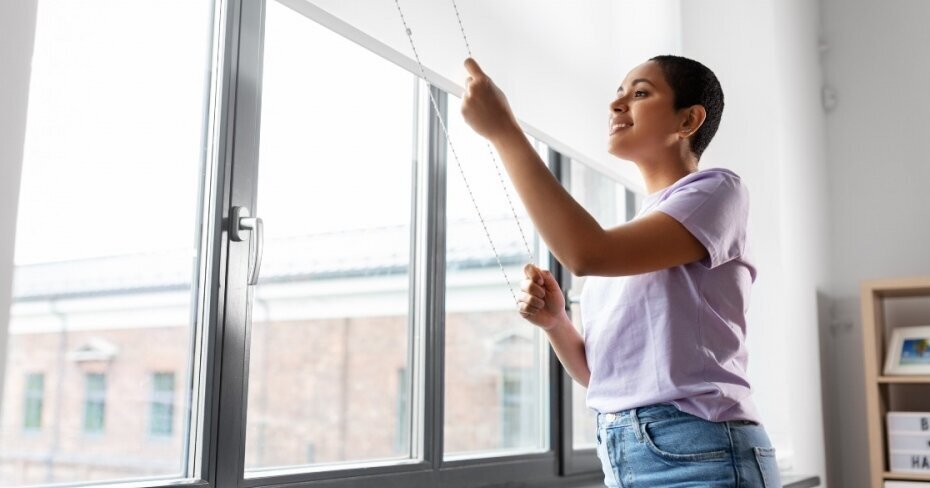The ultimate guide to mortgage closing costs in Canada

There are several additional fees homebuyers should prepare for when shopping for a property — apart from a substantial down payment. Here’s a comprehensive list of closing costs.
You’ve saved the money, seen many houses, and, at last, you are ready to make an offer on a home. But as you move toward closing the sale, you’ll have to spend a bit more money. In Canada, almost all home sales come with mortgage closing costs.
Preparing for all of them will ensure you’re not caught off guard — and soon, you’ll get to relax in your brand new home.
What are the closing costs when buying a house?
As you probably already know, you need a down payment to purchase a property. But in addition to the down payment, you also need to budget for closing costs when buying a house.
There are several one-time costs associated with buying a home. According to RBC, you should budget about 3% of your home’s purchase price — that’s about the average closing costs for a mortgage in Canada. Your real estate agent or lawyer may be able to provide a more detailed estimate of what these costs are.
Down payment vs. closing costs
In Canada, your down payment amount is put toward the home's total purchase price, while the mortgage usually covers the rest. The down payment must be at least 5% of the purchase price if the home is worth $500,000 or less. Homebuyers must pay 10% of the purchase price for amounts higher than $500,000 to $999,999. Buyers must have a down payment of 20% for homes worth $1 million or more.
On the other hand, closing costs pay for many of the services you require in the homebuying process, such as lawyer fees, taxes, and inspections. Unlike your down payment, none of these expenses turn into equity — they are upfront costs.
Can closing costs be included in a mortgage?
It is not possible to roll closing costs into the mortgage on your new home. However, closing costs for first-time homebuyers can be greatly reduced by government rebates and exemptions.
What is included in closing costs?
How much closing costs are and who pays for closing costs depends on each individual charge, how much the property is worth, and where it is located.
Let’s look at some of the closing costs you are most likely to run into when buying a home.
Home inspection and appraisal
In today’s hot housing market, many people are forgoing home inspections to make their offers more competitive. However, most experts agree that it’s in the buyer’s best interest to make an offer conditional upon the results of a home inspection.
While the cost will depend largely on the size of the home, home inspections generally cost around $500.
A mortgage lender may also require that a recognized home appraiser evaluate the property to ensure that the house has not been over or undervalued. This can cost around $300 to $500.
Land transfer tax
Depending on where you purchase a home, you may also need to pay a land transfer tax. The amount varies from province to province and depends on whether you are a first-time homebuyer. Some regions have rebates for first-time homebuyers, reducing closing costs such as land transfer tax.
You can use the LowestRates.ca land transfer tax calculator to determine how much you will pay based on your location and if you’ll be eligible for any rebates.
Here’s how land transfer tax breaks down from province to province:
- Newfoundland and Labrador: Here, the transfer tax is $100 plus an additional four cents for every $100 of the purchase price above $500.
- Prince Edward Island: Buyers will have to pay 1% of the purchase price of the real property or the assessed value of the real property, whichever is greater. There are a number of exemptions, however, including for first-time homebuyers or people buying low-cost homes.
- Nova Scotia: In Nova Scotia, municipalities set a deed transfer tax, varying from 0.5% to 1.5%. Here’s a full list of those taxes by the municipality.
- New Brunswick: No matter where you purchase a home in New Brunswick, you’ll pay a land transfer tax of 1%.
- Quebec: Buyers are charged a Welcome Tax in Quebec. This closing cost, which is a percentage charged, will increase depending on the property price and differs depending on whether you are purchasing a home in Montreal, where the rate is a bit higher for more expensive properties.
- Ontario: The amount of land transfer tax paid in Ontario scales up the more expensive the property is, ranging from 0.5% to 2.5%. Note that people buying in Toronto will also have to pay a municipal land transfer tax, at the same amount as the Ontario tax, but with an additional $75 + HST administration fee. Both the province and the city of Toronto offer rebates for first-time homebuyers.
- Manitoba: Much like Quebec and Ontario, Manitoba also has a sliding scale for land transfer taxes that increases based on the worth of the property.
- Saskatchewan: There is no Land Transfer Tax in Saskatchewan, but you will need to pay several fees to register your property.
- Alberta: Similar to Saskatchewan, Alberta has no Land Transfer Tax, but you will need to pay registration fees for land transfer and mortgage.
- British Columbia: Another sliding scale province, British Columbia charges anywhere from 1% to 3% in land transfer tax depending on the value of the property. The province also charges an additional 2% if the property is worth more than $3 million. There are some exemptions or rebates for first-time homebuyers or those buying new homes.
- Yukon: In the Yukon, rather than pay a percentage of the purchase price for your land transfer tax, you pay one of five flat-rate fees that are determined by your property and mortgage value.
- Northwest Territories: In the NWT, you’re charged on both the property value and the mortgage amount. Properties worth $1 million or less are charged $1.50 for every $1,000, with a minimum $100 charge. For properties worth $1 million or more, owners are charged $1,500 plus $1.00 for every $1,000. You’re also charged $1.00 for every $1,000 of your mortgage amount, with a minimum charge of $80.
- Nunavut: There is no transfer tax in Nunavut — just a registration fee.
Real estate fees
Sellers have an additional closing cost: real estate commissions. Real estate agents get a percentage of the sale as their fee, which the seller negotiates ahead of time. The buyer, however, is not on the hook for any of that. The current owners must pay that closing cost when selling the house.
Legal fees
You’ll need a lawyer to help you with several tasks, including a title search, drafting a title deed, and preparing the mortgage.
It can be difficult to predict exactly how much legal fees will run you, but according to Zinati Kay Barristers and Solicitors, you should expect to spend between $500 and $1,000. Some lawyers may also offer a flat fee for a range of services.
GST and HST
According to CIBC, this may apply only if you are buying a new build or a home that has undergone extensive renovations — however, you may also qualify for a rebate.
Insurance costs
Whether or not you need to pay one-time insurance costs depends on your situation. For example, if you put less than 20% down on your home, you will need to purchase CMHC insurance. Residents of Manitoba, Québec, Ontario, and Saskatchewan also pay PST on the CMHC premium.
Your mortgage lender may also request that you get title insurance, which covers costs if there is a dispute over the property lines with a neighbour. Some people also decide to get general mortgage protection insurance or job loss insurance, which promises to cover you if some catastrophic event renders you unable to pay your mortgage.
However, with mortgage protection insurance, you pay the same premium even as the balance of your mortgage declines over time, meaning that your overall coverage decreases over time. Experts often recommend getting a solid life insurance plan instead, which can help your family pay off your mortgage in full in the event of your death or a catastrophic injury.
Estoppel certificate
An estoppel certificate is a closing cost for a condo or strata owners outside Quebec. The certificate, which usually runs about $100, outlines common fees for your unit and comes with the condo corporation’s financial statements.
Are there closing costs to refinance my mortgage?
If you decide to refinance your mortgage, the closing costs will be similar to those you encountered when you secured your first mortgage. If you have less than 20% equity in your home, you will have to be insured by the CMHC. If you decide to refinance with a different lender, you’ll also have to pay a fee for breaking your old mortgage.
Refinancing fees will vary depending on the type of mortgage you have: variable or fixed. Common mortgage refinance closing costs include legal fees and a mortgage registration fee for the new loan agreement. Some lenders may require another home appraisal.
Which closing costs are negotiable?
Some home closing costs aren’t fixed. Here are a few you can negotiate.
- Legal fees: Before you settle on a lawyer, ask about their rates. You’re under no obligation to take a lawyer who is too expensive for you.
- Mortgage fees: Lenders want your business. So be sure to ask where they can get the costs down for you. Your first step should be to compare mortgage interest rates online from various providers before deciding where to get your mortgage.
- Insurance: Similarly, shop around before you choose a home insurance provider. A good broker will also ensure that they are clear about what insurance policies you should have.
Which closing costs are tax-deductible?
Here’s some good news: many mortgage closing costs are eligible for a tax deduction. Here are a few examples:
- Land transfer tax: if you are a first-time homebuyer, you can get a rebate on part of the tax.
- GST and HST: If you paid these taxes on a new build, you might qualify for the new housing rebate.
Is it possible to get a mortgage with zero closing costs?
No. It doesn’t matter where you live in Canada — every mortgage has closing costs.
Some mortgage lenders may offer low mortgage closing costs compared to others — and there are even some lenders in the U.S. that provide no-closing-cost mortgages, but it’s not something you can escape here in Canada.
How can I better prepare for and compare closing costs?
If you’re looking to find low closing costs on your mortgage, there are several closing costs estimators online that you may find helpful as you budget for your dream home.
However, you can’t rely solely on these tools to give you an accurate picture of your closing costs when buying a house. How closing costs are calculated will vary from lender to lender and province to province, so it’s in your best interest to do some research upfront to get a better idea of what to expect.
While your biggest concern might be cheap closing costs when taking out a mortgage, buying a house requires understanding how closing costs work. If you don’t, you could be in for an expensive surprise.
About the author

H.G. Watson is a writer based in Toronto. Her work has appeared in Chatelaine, Vice, Flare, Maisonneuve, The Walrus and more. You can find her at @hg_watson on Twitter.


